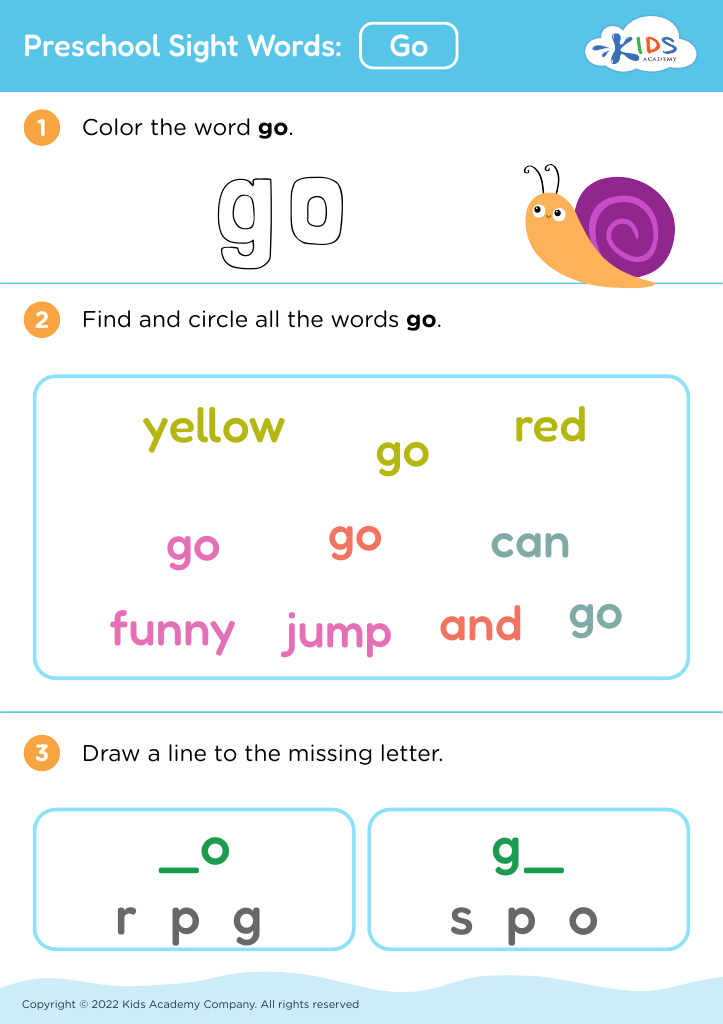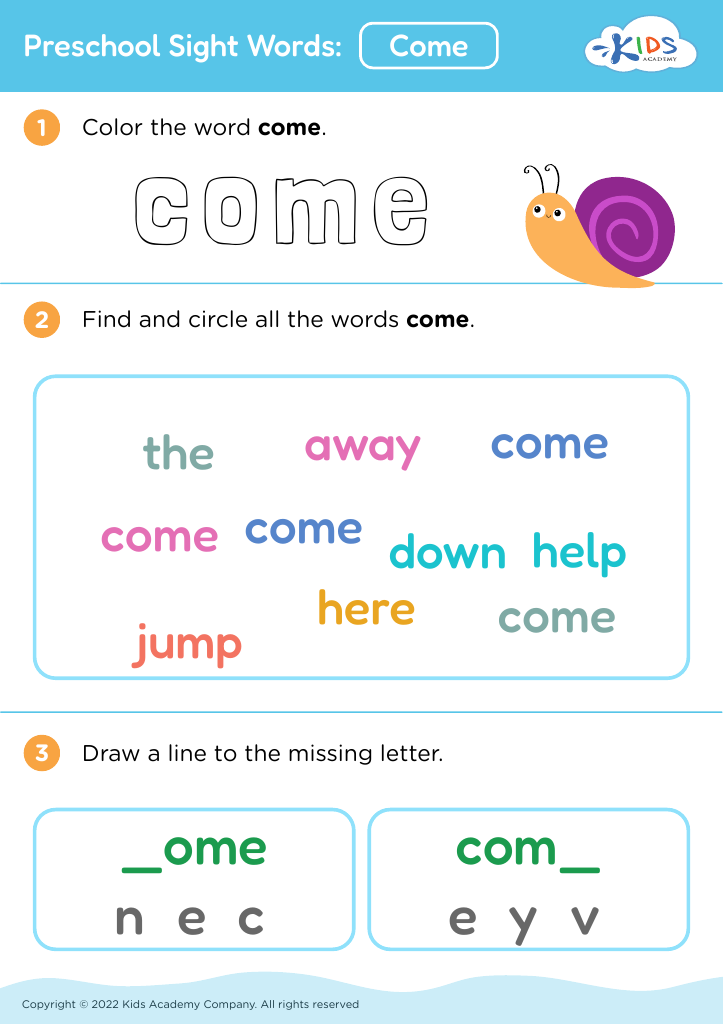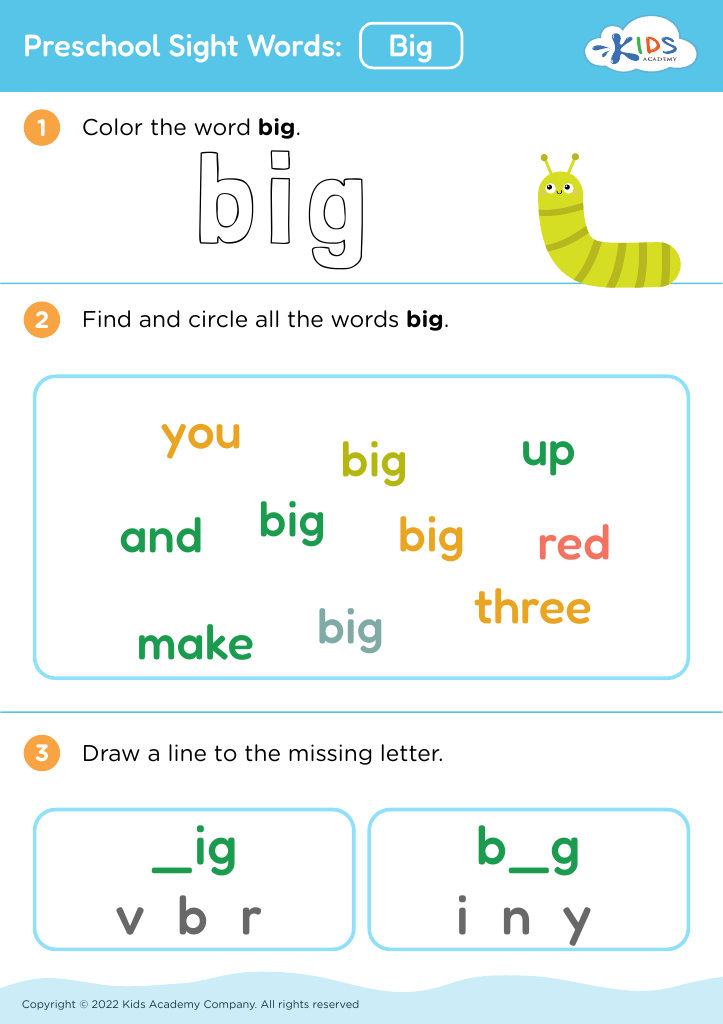Logical Reasoning Reading Worksheets
19 filtered results
-
From - To
Enhance your child's critical thinking skills with our engaging Logical Reasoning Reading Worksheets! Designed for early learners, these worksheets promote cognitive development by encouraging kids to analyze situations, draw conclusions, and solve problems. With a variety of thought-provoking activities, students will practice key skills such as sequence recognition, pattern identification, and logical deductions. Our easy-to-use format makes it simple for parents and teachers to incorporate these worksheets into their lesson plans or at-home learning routines. Empower your child’s mental agility and boost their reading comprehension with our fun and interactive worksheets today! Explore the full collection online and watch your child thrive!
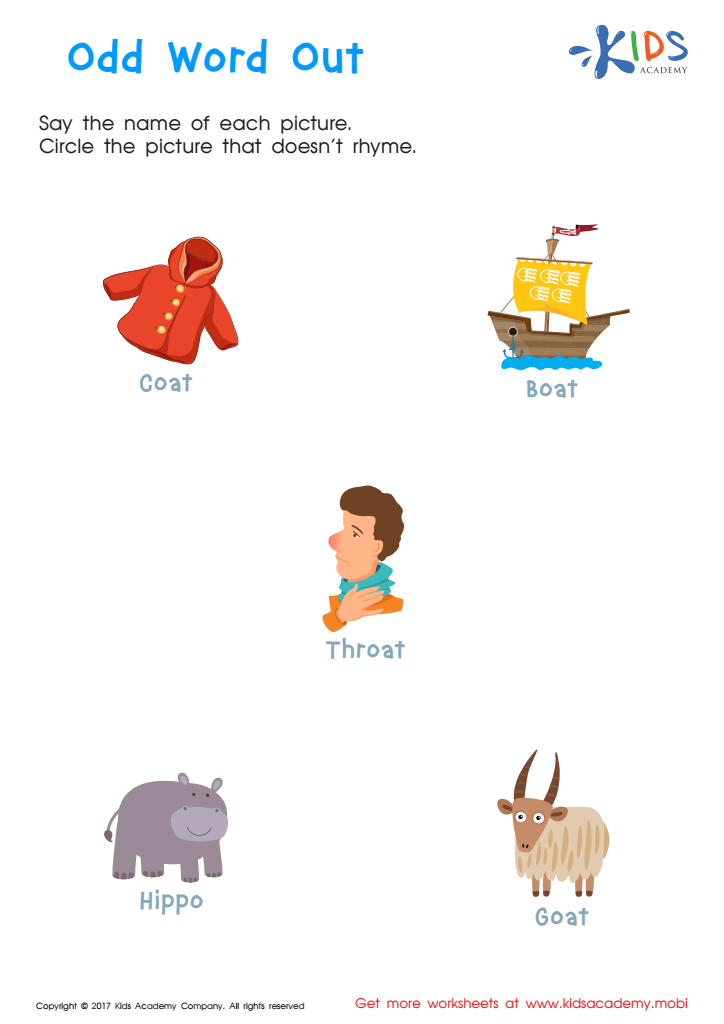

Odd Word Out Rhyming Worksheet
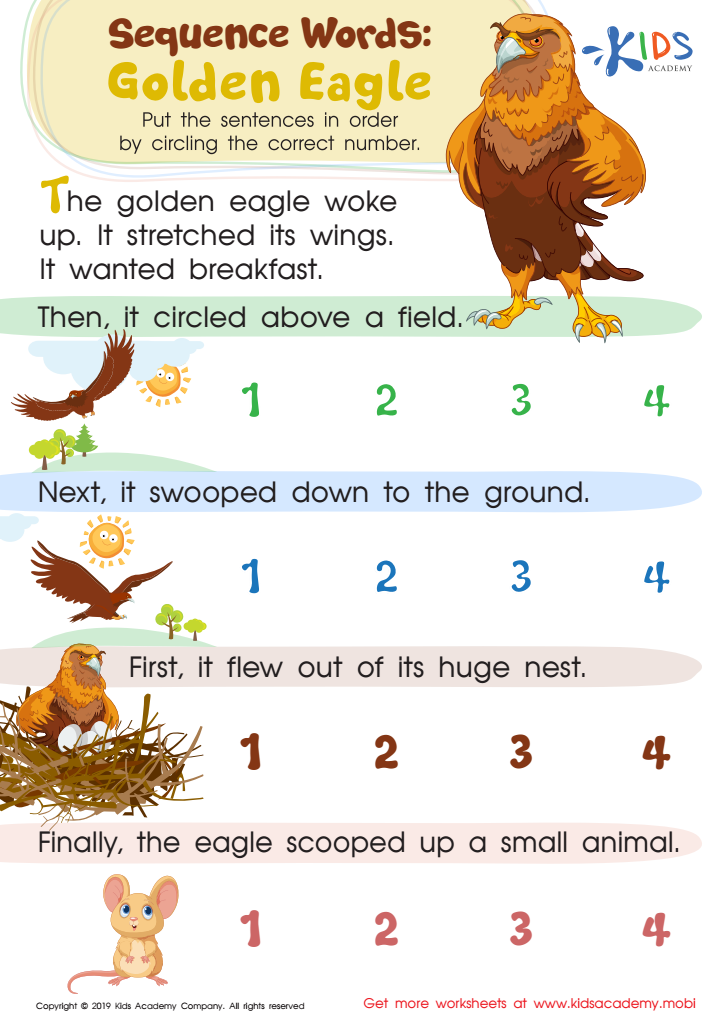

Sequence Word Eagle Worksheet
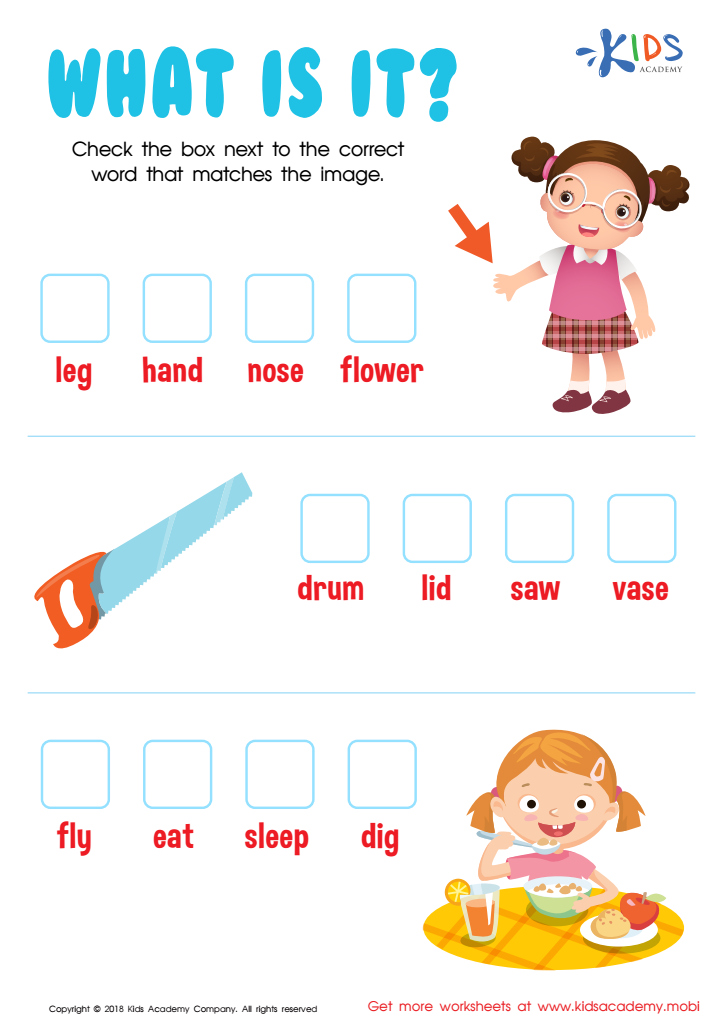

What Is It? Worksheet
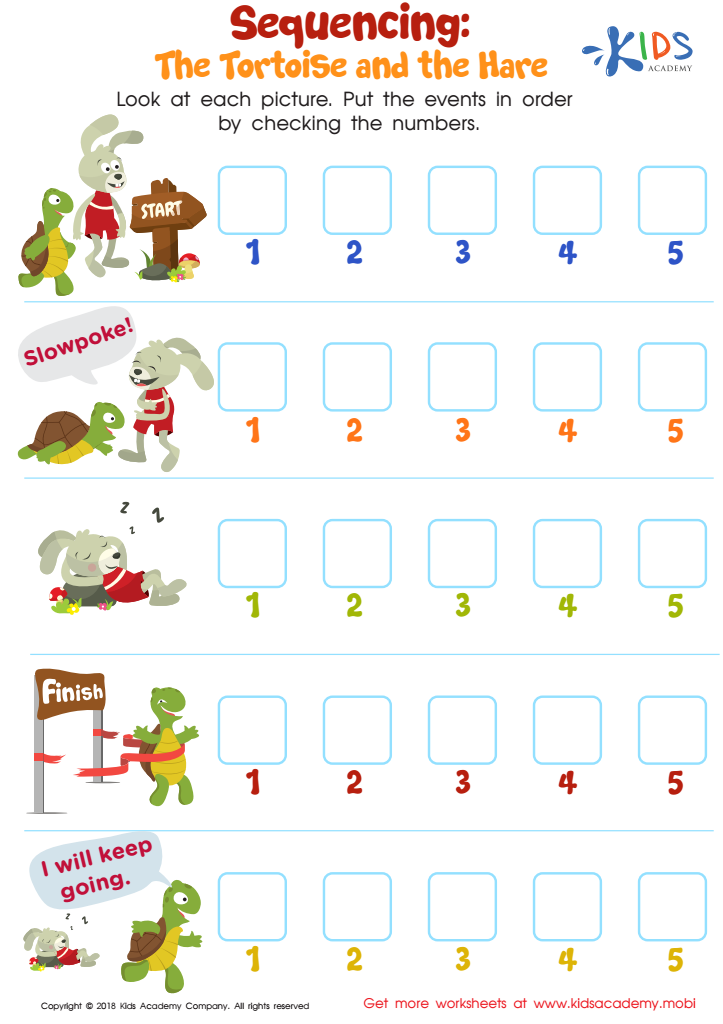

Sequencing: The Tortoise and the Hare Worksheet


Dogs, Dogs Worksheet
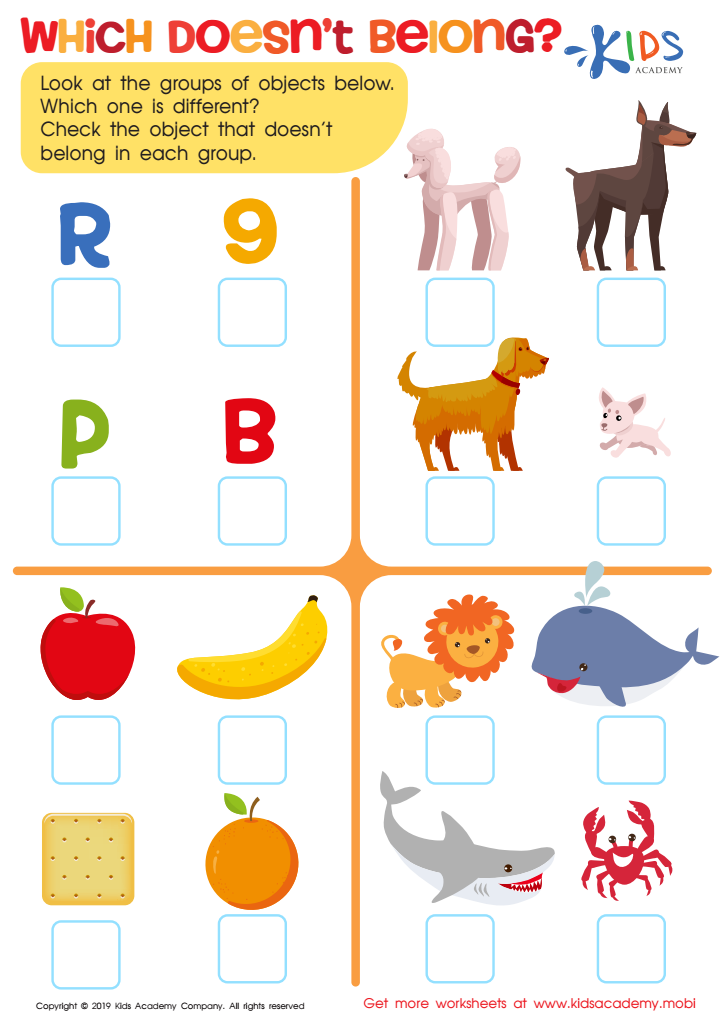

Which Doesn't Belong? Worksheet
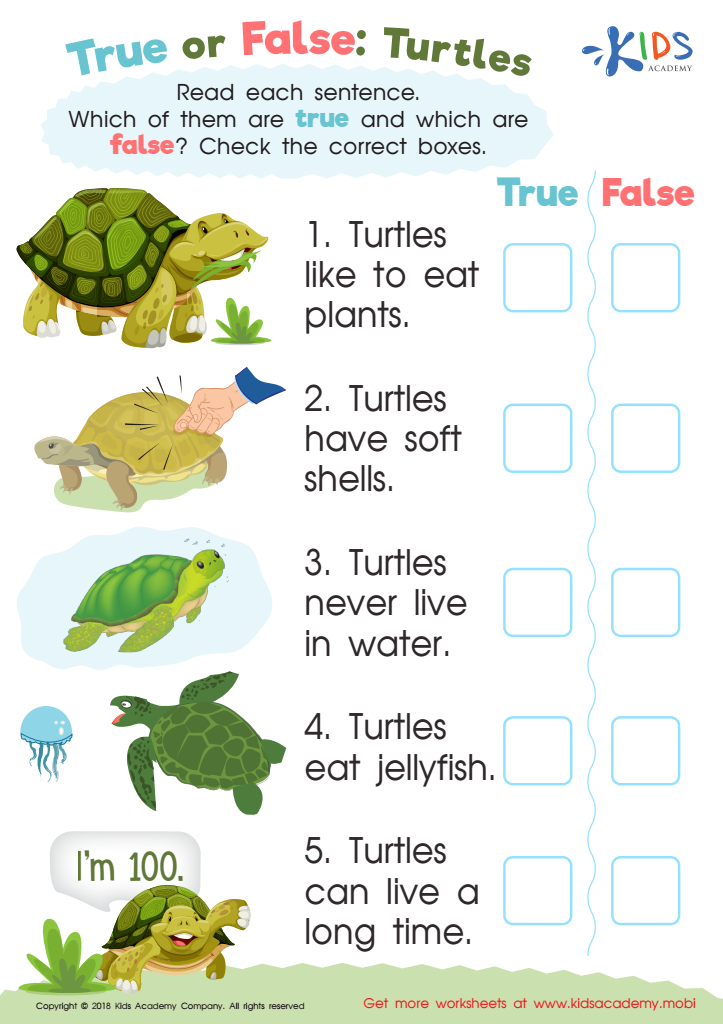

True or False: Turtles Worksheet
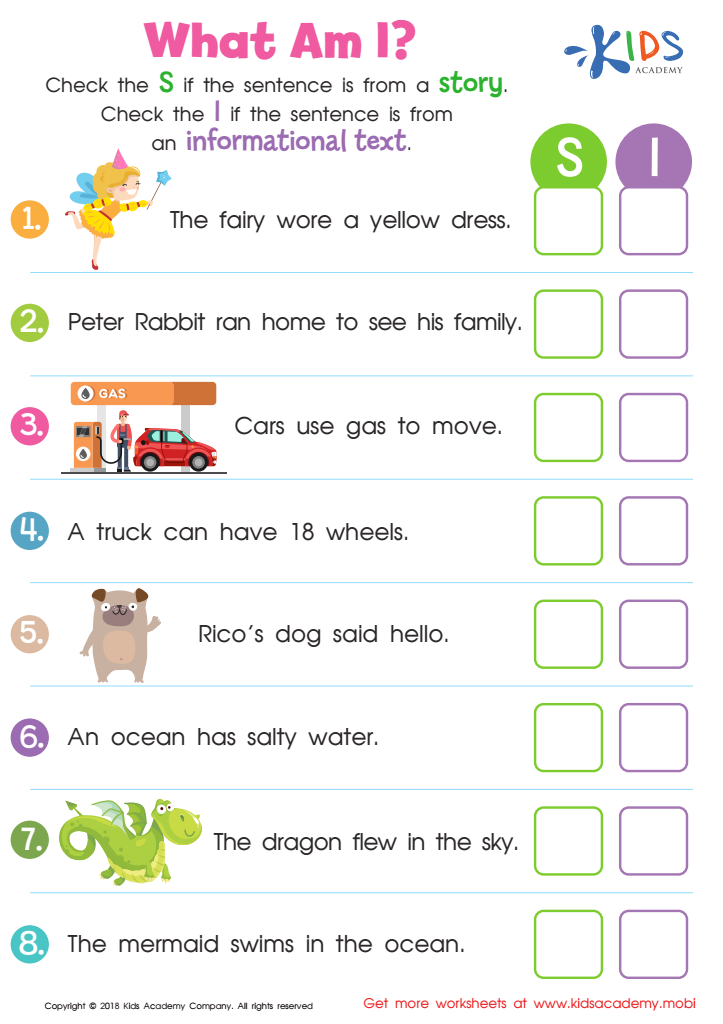

What Am I? Worksheet
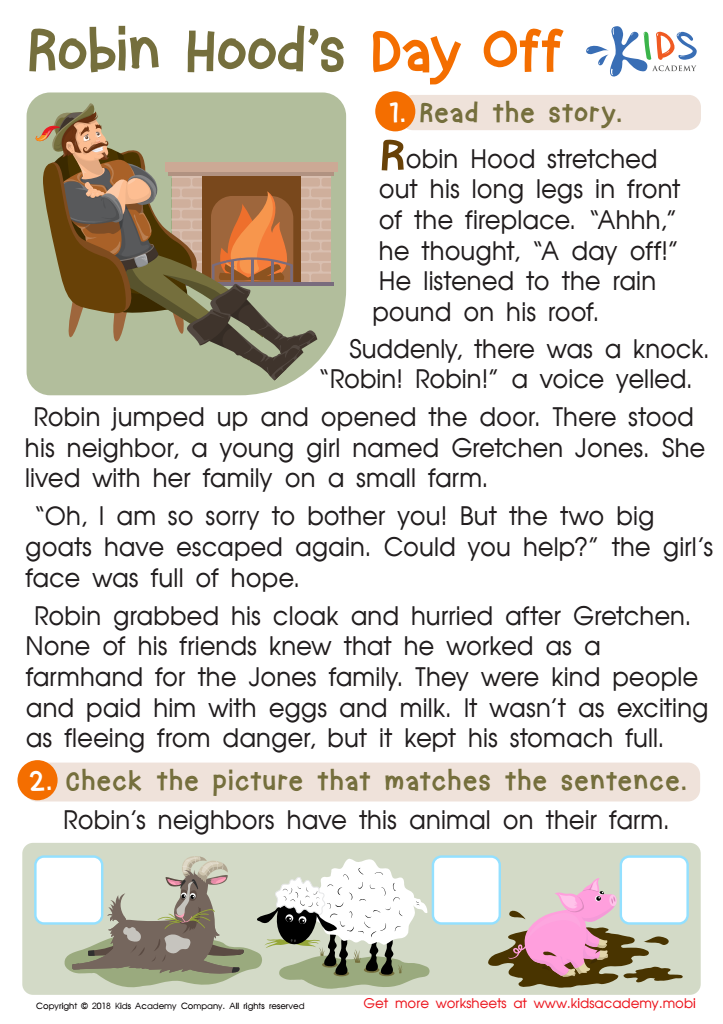

Robin Hood's Day Off Worksheet
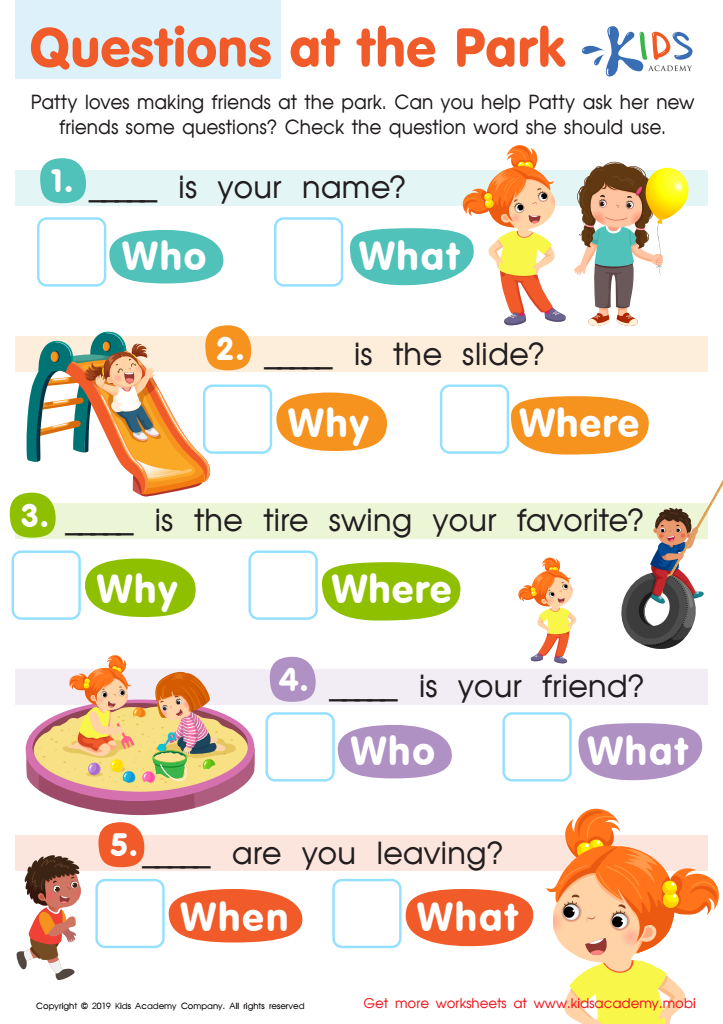

Questions at the Park Worksheet
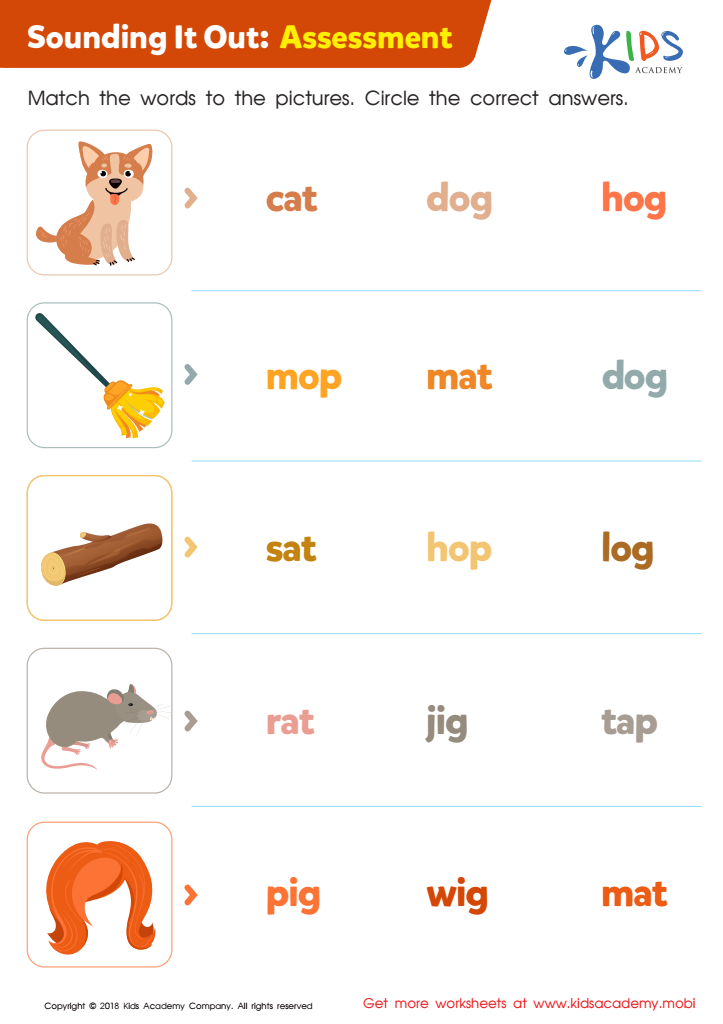

Sounding it Out: Assessment Worksheet
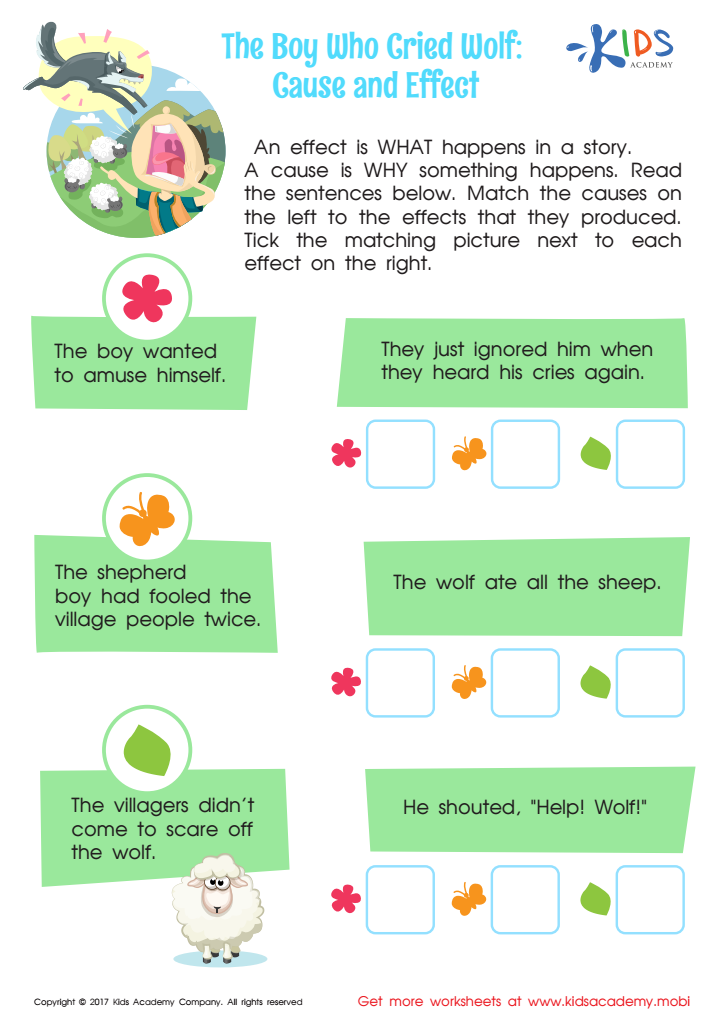

The Boy Who Cried Wolf: Cause and Effect Worksheet
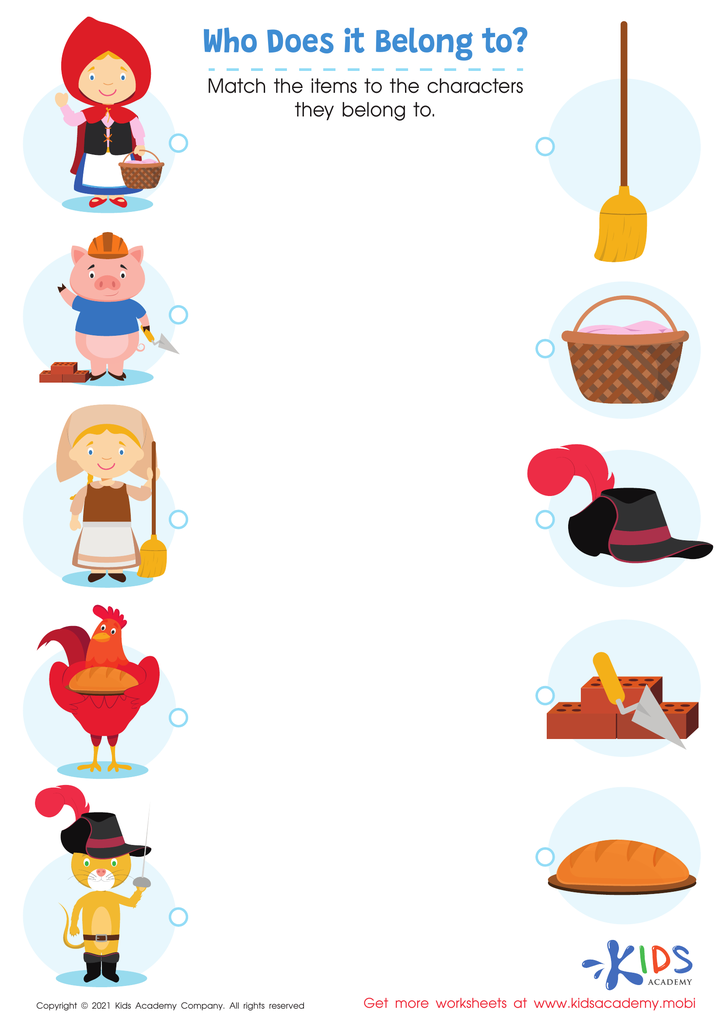

Who Does It Belong To? Worksheet
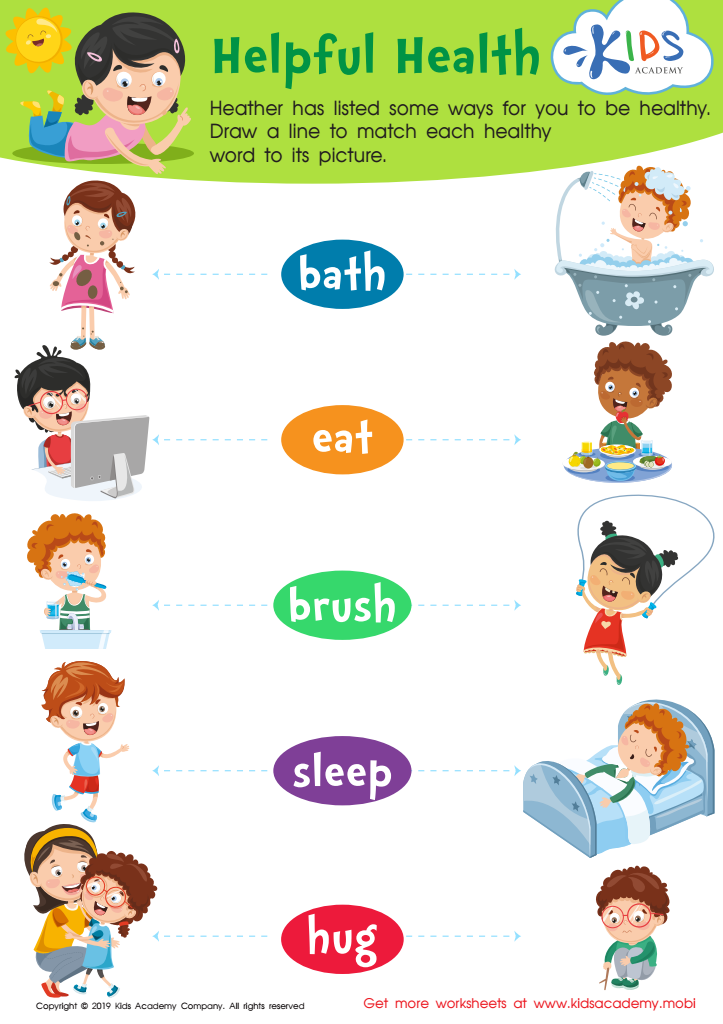

Helpful Health Worksheet
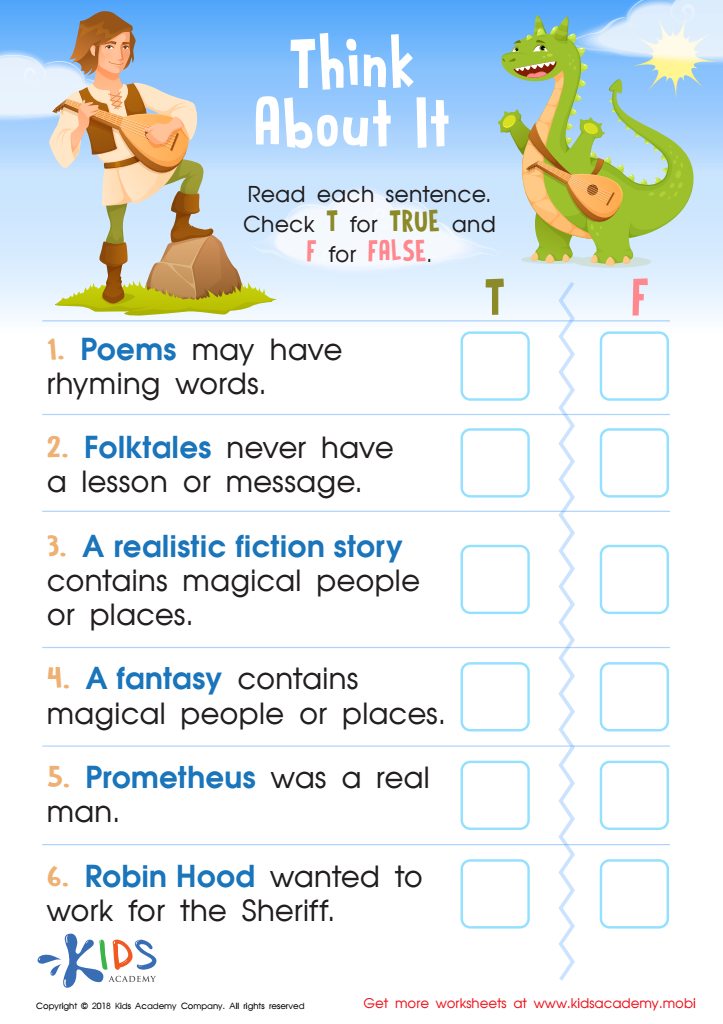

Think About It: Assessment Worksheet
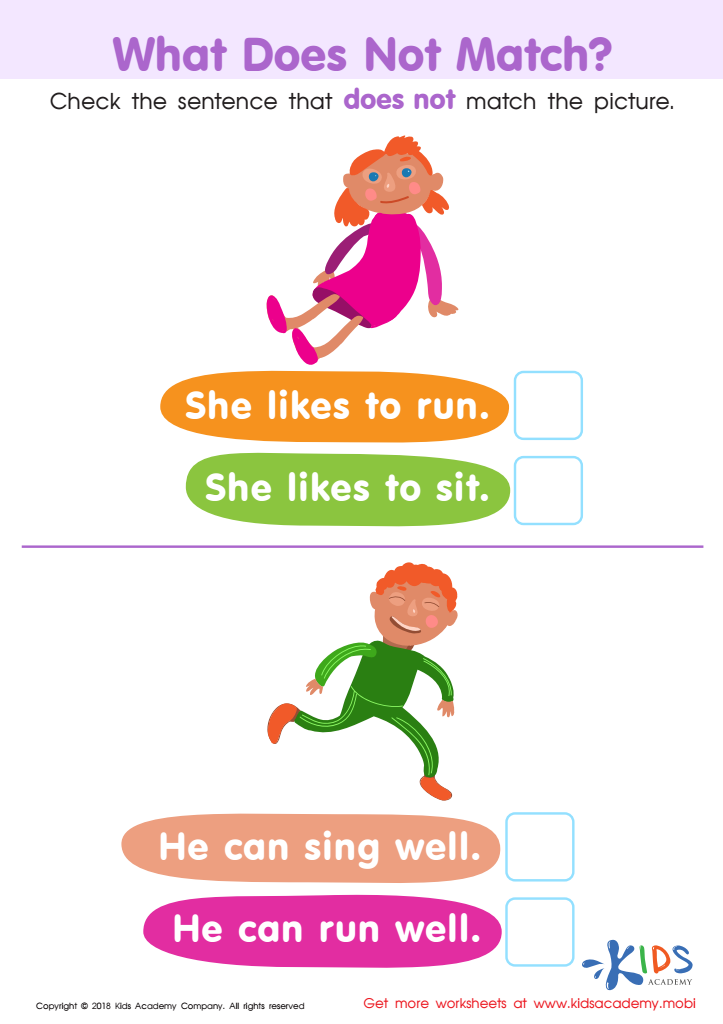

What Does Not Match? Worksheet
Logical reasoning reading is crucial for the cognitive development of children, making it an essential focus for parents and teachers. This skill not only enhances critical thinking but also promotes problem-solving abilities that are vital in everyday life. When children engage in logical reasoning reading, they learn to analyze information, identify patterns, and make connections between various concepts. These competencies are foundational for academic success across subjects, particularly in mathematics and science.
Moreover, developing logical reasoning skills fosters a love for reading and deepens comprehension. As children learn to dissect arguments and understand cause-and-effect relationships, they become more insightful readers. This empowerment equips them to engage in discussions, make informed choices, and approach challenges with confidence.
Parents and teachers who prioritize logical reasoning reading help nurture independent, analytical thinkers who are better prepared for the complexities of the modern world. By cultivating these skills early on, educators and families can inspire children to become lifelong learners and thoughtful individuals, capable of contributing positively to society. Ultimately, acknowledgments of the importance of logical reasoning will guide instructional strategies and parental support, creating a generation of insightful and capable decision-makers.
 Assign to My Students
Assign to My Students



